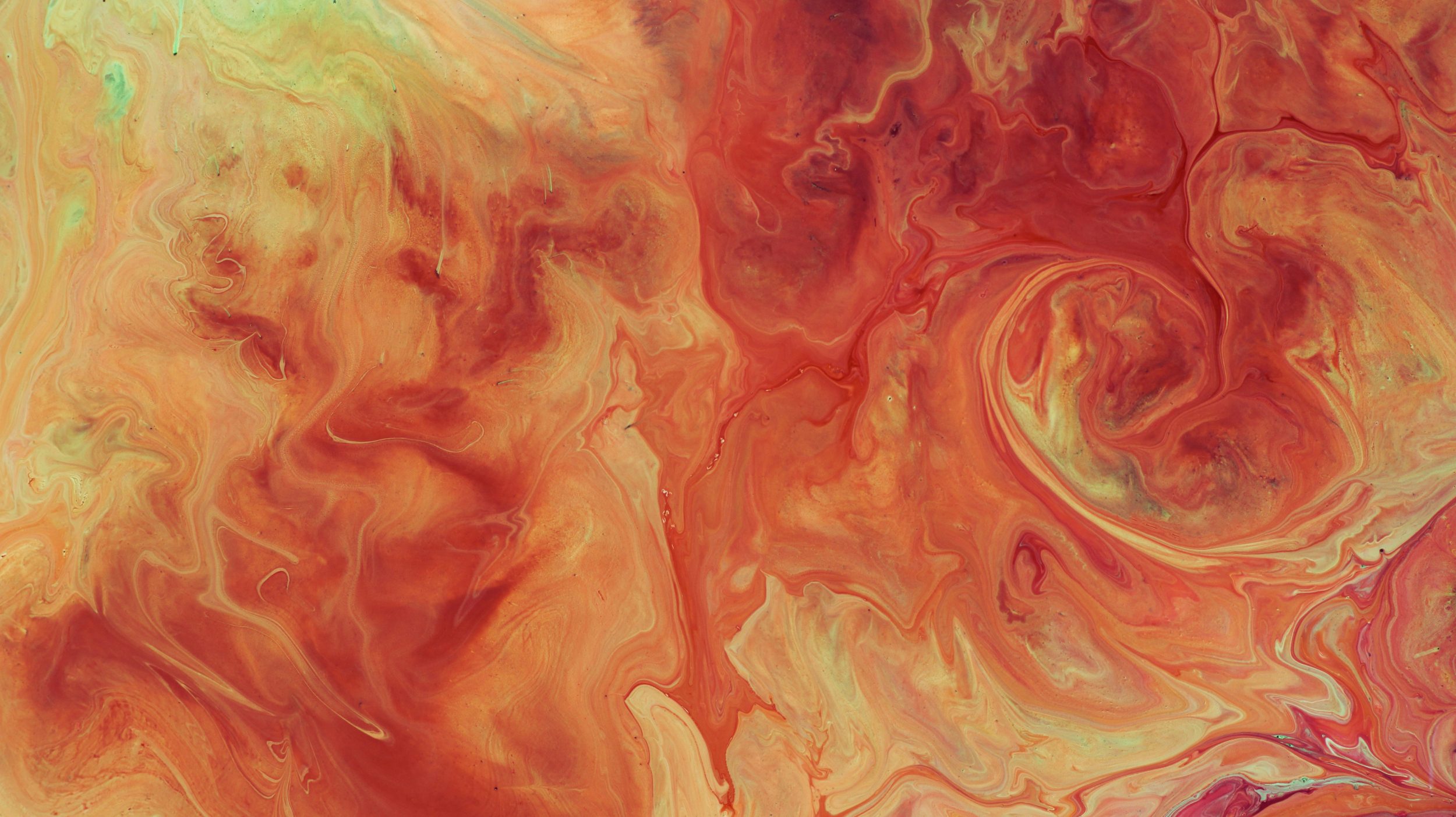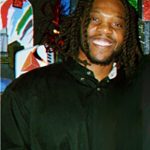Editors’ Note This is the introduction to our 2024 series commemorating April as National Poetry Month. Starting today and continuing every Friday for the remainder of the month, we will publish new poetry written by a group of men incarcerated in Massachusetts who work here under the banner Ink from Honey, a project founded by Amos Don.
I was twenty-three years old when a white corrections officer taunted me by showing me a newspaper article in which I was described as a terrorist. Since then, my life has been shaped by stories that journalists and others have gotten to tell the public about me. A white woman was even convinced by police to lie about me, and though she later recanted her statement, the lie stuck. As has so often happened, a white woman’s story was believed over a Black man’s truth, contributing to my conviction.
For many long years of incarceration, I couldn’t escape the stories being told about me. I needed to find a way to take control of the narrative—how to tell my own story, in my own words—but I didn’t know where to begin.
That would start to change when, in federal penitentiary, I was assigned a cellmate who was a Black Muslim from North Carolina. Not even a second after our introduction, I spent the better part of two hours venting about the most recent article a journalist had inked about me. He listened to me until I was so tired from recounting the heavy burden that I excused myself to my bunk to rest. When I woke up, he handed me a paper titled “Coming of Age.” On the paper was a poem he’d just written. The poem spoke about my smile, hope, and humanity. All the reasons to keep my spirit alive. That day, I was converted to poetry. I think of that moment as having been my coming of age.
I was in awe of his ability to convert my venting into poetic form. For so long, words and stories had been used against me. Other people’s narratives defined me, and I had to deal with the consequences. But this paper from my cellmate was the voice of freedom. It gave me back my hope.
I began writing poetry in a similar style. I would use my cellmate’s poem as a template until I found my own poetic voice. I also began reading other poets, such as Langston Hughes and Maya Angelou. I especially loved Angelou; I felt so much like her “caged bird.” Even through the nights of my federal solitary confinement, reading angry letters from anonymous senders who believed the stories being told about me in the press, I was able to keep up compassion and hope. I lamented through my words: I wrote poetry, a lot of poetry.
When my federal sentence came to an end, I was transferred to a Massachusetts state prison to serve a separate, lengthy sentence. By then, I’d written dozens of poems. I grew up in Massachusetts, and the return allowed me to feel closer to freedom and the life I’d had before my incarceration. Here, I began writing down my memories. Like an unorthodox journalist, l wrote my truth, going as far back as kindergarten. I began critically thinking about where my life went wrong. I journaled my life until it led me to ask myself: Why had journalists made me out to be a monster? People I’d never known, who’d never known me, who saw me only as a dangerous Black man.
Writing gave me access to history—my own and my people’s. It was through writing, even without a structured education, that I came to understand the existence of systemic racism. I was a systemic slave. The system allowed the prosecutor in my case to travel outside the scope of fairness, using his privilege and power to ignore integrity and justice. He, like other powerful people throughout history, was able to bury a Black man within the system.
Today I am able to write about my life and reflect on the structures that keep Black people enslaved. As a Haitian American, I think about my ancestors, the Haitian freedom fighters who sacrificed their blood in the Battle of Savannah during the U.S. Revolutionary War. I write to them, seeing the racism of their experiences. This writing I do is in conversation with the history of Fredrick Douglass, who learned how to read and write his own narrative. It also reclaims my narrative; like Douglass stated about the land of Haiti: “No other land has brighter skies. No other land has purer water, richer soil, or a more happily diversified climate.”
In the midst of a long, oppressive night—one of many—an image came to me of a bee holding a pen. I remembered that bees give birth (life) through their mouths, but this bee had a pen. Now that I understood poetry, to me this meant that the bee had to find a new way to produce honey (life), just as I did when my voice was silenced by my sentence. Thus, “Ink from Honey” became my motto, and the bee the logo for my website DonofCreation.com where I share my poetry and other writing.
Gradually, Ink from Honey would also become the name for a project to share with the outside community my poetry. My public debut was arranged with the help of Boston poet and artist Amanda Shea, at an event called Reparations Lab, where I was able to participate through a prerecording of me reading my work.
This first taste of freedom was sweet. Ink from Honey had connected me to other poets, who now acknowledged me as a poet despite being incarcerated. I felt moved when I heard one poet say that I’d moved her to think about writing to her incarcerated brother. I was then offered the opportunity to share my work elsewhere: at Boston University’s Race, Prison, Justice Arts; the Kick Stand Café; and the Sober Society Showcase at the Enso Art Gallery.
Not only did Ink from Honey connect me to outside poets, but I now began connecting to other poets who were incarcerated. First there was Alexander Gallet, a young fellow Haitian who is part of my cohort in the Emerson Prison Initiative (EPI), a bachelor’s program for incarcerated students. Then I met Brandon Callender, another EPI cohort member and poet, author of the collection 2 Crack A Smile. And finally, Wayne Grant, an elder poet and graduate of the Boston University Prison Education Program who embraced and welcomed me into his prison poetry society. Connecting with these men has been an intellectual revolution.
I look forward to sharing my work as well as the work of these three poets throughout National Poetry Month. I’m excited to be able to collaborate with incarcerated poets and encourage them to take hold of their own narratives. National Poetry Month is a month to remember why a poet’s voice matters. My hope for Ink from Honey is to share more of our work as grassroots poets writing the evolution of redemption.
I believe every human is a poet, whether they know it or not. This is how I understand human emotions, the feelings connected to poetry, building character through words. This is the kind of role that poetry plays in prison. Poetry has allowed me to see that my desire for change can be nourished through hope. I needed my voice to be heard—now it’s being heard, and I wait for it to bring me my freedom. Hope has allowed me to trust in the natural spirit of justice, to reverse the course that false narratives spun about me. I have this strong hope in society, that someone will read my words and feel moved to share them. Perhaps it’s you, reading this now, who will help me rise from the ashes of my wrongful conviction.
I still think about the journalists who tried to tell my story for me. I still wonder why they chose to write those narratives. But over the course of these years, as I’ve worked on my character and found a new love for education, those questions have been overshadowed by hope. Today, I can honestly say that I have hope. I mean, can you imagine, the ability to reenvision and rewrite your story? It’s a power gifted to all of us through poetry: to hope, to love. With this capacity, I believe that poems can offer everyone a new lens to look at life.
Follow this link to read Amos Don’s poetry and listen to him reading his work.
Image: Susan Wilkinson/Unsplash

